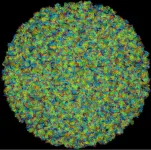(Press-News.org)
Early detection and treatment of hereditary transthyretin-related amyloidosis via genetic counseling are crucial. Yet, not all at-risk individuals seek genetic counseling, and management for presymptomatic carriers remains unclear. To tackle these knowledge gaps, a research team from Japan conducted a retrospective study on over 200 people who sought genetic counseling at a medical center, shedding light on the current advantages and limitations of current practices.
Hereditary transthyretin-related amyloidosis (AATRv amyloidosis) is a rare inherited disorder in which the liver produces abnormal transthyretin (TTR) proteins due to a variant in the TTR gene. Like in other types of amyloidosis, these proteins tend to misfold and accumulate, forming harmful structures known as amyloid fibers. If left untreated, AATRv amyloidosis can cause problems in the heart and kidneys, as well as neurological damage.
Thanks to substantial progress in medical science, there are some treatment options available to people diagnosed with AATRv amyloidosis, such as getting a liver transplant or taking TTR stabilizer drugs. If caught early, the progression of this disease can be slowed down. However, not everyone who is at risk of carrying a mutated TTR gene is willing to get proper genetic counseling for themselves or for their families, leaving many people potentially exposed to the damages caused by AATRv amyloidosis.
Against this backdrop, researchers from Japan decided to conduct a study aimed at gaining insights into the current status of genetic counseling and presymptomatic management among people at risk of developing AATRv amyloidosis. A paper reporting their findings, co-authored by Senior Assistant Professor Katsuya Nakamura, Dr. Tsuneaki Yoshinaga, and Dr. Yoshiki Sekijima from Shinshu University, was published online in the journal Amyloid on May 25, 2024.
In a retrospective study, the research team enrolled 202 participants who visited Shinshu University Hospital for genetic counseling regarding AATRv amyloidosis from April 1998 to March 2021. “Despite the development of new and effective therapeutic drugs, we still encounter patients who are hesitant to share their genetic information with their families. Therefore, we decided to investigate the extent to which the at-risk family members of patients benefit from appropriate genetic care through genetic counseling,” says Dr. Nakamura, explaining the motivation behind this work.
After analyzing the data recorded for these patients, the researchers found that 103 of the people who received genetic counseling (about 50%) were asymptomatic but at risk due to a family history of AATRv amyloidosis. Of them, only 83 actually underwent predictive testing, with 33 of them coming out positive. As for the other 20, the researchers could determine the reasoning behind their choices in most cases. Worth noting, the team also monitored 31 of the 33 presymptomatic carriers, providing data on various aspects of their condition and treatment outcomes.
After reviewing the data, the researchers came to significant conclusions. They recognized that the way in which genetic testing is currently performed has several key limitations. “As a result of the development of effective treatments and advances in disease elucidation, the number of presymptomatic carriers detected using targeted genetic approaches is expected to increase. Developing a less invasive and simpler method for monitoring that can be performed at any facility other than specialized amyloidosis centers is imperative,” highlights Nakamura.
On the other hand, the findings suggest that a comprehensive clinical genetic approach combining genetic counseling, predictive genetic testing, and monitoring methods could be greatly beneficial for at-risk individuals. Moreover, considering how stressful the mere possibility of carrying a diseased gene can be, the researchers emphasize that psychosocial support should also be provided collaboratively by genetic counselors and psychologists. Such guidelines may also be readily applicable to other genetic diseases. “Ultimately, we hope many patients, at-risk individuals, and medical professionals can understand the significance of appropriately promoting this type of approach,” concludes Dr. Nakamura.
Let us hope that more individuals at risk of genetic diseases undergo early screening, enabling effective treatment to reduce their disease burden if symptoms develop and improve their quality of life.
###
About Shinshu University
Shinshu University is a national university founded in 1949 and located nestling under the Japanese Alps in Nagano known for its stunning natural landscapes. Our motto, "Powered by Nature - strengthening our network with society and applying nature to create innovative solutions for a better tomorrow" reflects the mission of fostering promising creative professionals and deepening the collaborative relationship with local communities, which leads to our contribution to regional development by innovation in various fields. We’re working on providing solutions for building a sustainable society through interdisciplinary research fields: material science (carbon, fiber and composites), biomedical science (for intractable diseases and preventive medicine) and mountain science, and aiming to boost research and innovation capability through collaborative projects with distinguished researchers from the world. For more information visit https://www.shinshu-u.ac.jp/english/ or follow us on X (Twitter) @ShinshuUni for our latest news.
END
Bottom Line: The MEK inhibitor trametinib (Mekinist) was an effective treatment for pediatric patients with relapsed or refractory juvenile myelomonocytic leukemia (JMML) enrolled in a phase II clinical trial, with seven of 10 patients alive after a median of two years.
Journal in Which the Study was Published: Cancer Discovery, a journal of the American Association for Cancer Research (AACR)
Authors: The senior author is Mignon Loh, MD, who is the director of the Ben Towne Center for Childhood Cancer Research and the head of the Division of Pediatric Hematology, Oncology, Bone ...
A new machine-learning system developed at the University of Alaska Fairbanks can automatically produce detailed maps from satellite data to show locations of likely beetle-killed spruce trees in Alaska, even in forests of low and moderate infestation where identification is otherwise difficult.
The automated process can help forestry and wildfire managers in their decisions. That’s critical as the beetle infestation spreads.
The Alaska Division of Forestry and Fire Protection calls the spruce beetle “the most damaging ...
Alzheimer's disease is the world’s most common neurodegenerative disease, affecting more than 50 million people globally. Alzheimer’s disease is also among the most fatal, landing as one of the top five causes of death worldwide. However, most currently available treatments are limited to alleviating the disease’s symptoms.
Now, a new study led by Chapman University researchers has explored the efficacy of using two existing Alzheimer’s disease drugs simultaneously to reduce mortality. It is one of the largest and ...
The number of people aged 65 and older with type 1 diabetes increased from 1.3 million in 1990 to 3.7 million in 2019, while death rates fell 25% from 4.7 per 100,000 population in 1990 to 3.5 in 2019, finds an analysis of data from over 200 countries and regions in The BMJ today.
Overall, the results show that more people with type 1 diabetes are living longer. However, death rates fell 13 times faster in high income countries compared with low and middle income countries, indicating that substantial ...
Momentary shifts in mood, even those lasting just a matter of seconds, profoundly alter the brain’s response to pleasurable experiences in people with bipolar disorder, finds a new study by UCL researchers.
Previous research shows that mood can make us experience events in more positive or negative light – irrespective of having bipolar disorder. When we are in a good mood, we are drawn to viewing things more favourably – causing the good mood to rollover and gain momentum.
Equally, when we are upset we get drawn into perceiving bad outcomes as even worse, causing us to remain upset or get even more upset.
This “momentum” in mood can bias how we perceive events ...
LAWRENCE — A partnership between scientists at the University of Kansas and collaborators in Europe, including war-torn Ukraine, will result in computer models of biological cells likely to hasten health breakthroughs by simulating molecular interactions inside cells with near experimental accuracy at vastly longer timescales than similar efforts.
The research is supported by the National Science Foundation’s IMPRESS-U (International Multilateral Partnerships for Resilient Education and Science System in Ukraine) program that aims to “support excellence in science and engineering research, education, and innovation through international collaboration and ...
DETROIT — Alice Walker, Ph.D., assistant professor of chemistry in the College of Liberal Arts and Sciences at Wayne State University, received a Faculty Early Career Development (CAREER) award from the National Science Foundation to fund her research on applying computational chemistry to the understanding and rational design of new fluorescent protein (FP) sensors.
“A sensor, chemically speaking, is a molecule that turns on or off in response to certain stimuli,” said Walker. “Proteins are good sensors because they have a florescent element; they essentially glow in the dark in response to when it touches something. ...
Why do politicians lie and deny when they are caught up in political scandal?
According to a newly published study led by a University of Nebraska–Lincoln political scientist, the answer may be that their supporters prefer a less-than-credible denial to losing political power and in-group status because of a discredited standard-bearer.
“The driving question of our research is whether people are actually incentivizing politicians to deny wrongdoing and escape accountability,” said Pierce Ekstrom, assistant professor of political science at Nebraska.
“Certainly, there’s a very strong norm ...
WASHINGTON – A new detailed analysis of a patient’s second cancer after receiving CAR-T therapy for the initial cancer provides rare but important insights intended to offer helpful guidance for oncologists and pathologists about the clinical presentation and pathologic features involved in a CAR-T related second cancer.
The finding is reported June 13, 2024, in the New England Journal of Medicine.
CAR-T therapy is described by many as a new and promising treatment for blood cancers. CAR-T therapy is made from a patient’s ...
A large study by researchers at Stanford Medicine has found that the risk of secondary blood cancers after CAR-T cell therapy — a cell-based cancer treatment that exploded on the scene in 2017 as a treatment for intractable blood cancers — is low, despite a Food and Drug Administration warning.
In November 2023, the FDA issued a warning about a risk of secondary cancers — particularly blood cancers — that may be associated with CAR-T cell therapy. The warning was preceded by a rising tide of ...





